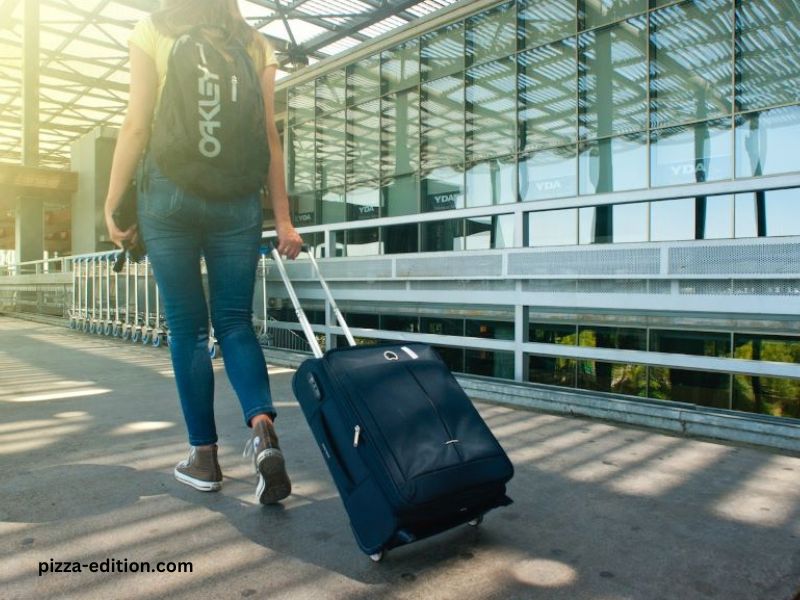In an increasingly interconnected world, international travel has become a routine part of life for many people, including government employees, corporate executives, and individuals engaged in sensitive activities. However, with the opportunities for international travel also come significant risks, especially for those who handle classified or sensitive information. Defensive Foreign Travel Briefings (DFTBs) are essential tools designed to educate and prepare travelers for potential security threats they may encounter abroad. Understanding the frequency and importance of these briefings is crucial for maintaining security and ensuring the safety of both the traveler and the sensitive information they may carry.
What is a Defensive Foreign Travel Briefing?
A Defensive Foreign Travel Briefing is a security-oriented presentation or meeting provided to individuals who are about to embark on international travel, particularly to countries where there is a heightened risk of espionage, terrorism, or other security threats. These briefings are typically mandatory for government employees, contractors, and others who have access to classified or sensitive information. The goal of a DFTB is to equip travelers with the knowledge and tools necessary to protect themselves, their belongings, and any sensitive information they may carry from potential threats.
The briefing covers a range of topics, including:
- Threat Awareness: Information about the specific threats that may be present in the destination country, such as espionage activities, cyber threats, and physical dangers.
- Travel Security: Tips on how to maintain personal security while traveling, including how to avoid becoming a target of crime or espionage.
- Information Security: Guidance on how to protect sensitive information, both physical and digital, while abroad. This includes recommendations for secure communication methods and precautions against electronic surveillance.
- Cultural Sensitivity: An overview of cultural norms and practices in the destination country, which can help travelers avoid unintentional offenses or misunderstandings that could compromise their security.
- Emergency Procedures: Instructions on what to do in case of an emergency, such as a terrorist attack, natural disaster, or if the traveler finds themselves under surveillance or in other compromising situations.
The Importance of Regular Defensive Foreign Travel Briefings
The international security landscape is constantly evolving, with new threats emerging regularly. As a result, the information provided in a DFTB can quickly become outdated. Regular briefings are necessary to ensure that travelers are equipped with the most current information and strategies to mitigate risks.
For those with access to sensitive information, the consequences of failing to receive up-to-date briefings can be severe. Espionage, data breaches, and other security incidents can have far-reaching impacts, not only on national security but also on the safety of individuals and the integrity of organizations. Regular briefings help maintain a high level of vigilance and preparedness among travelers.
Frequency of Defensive Foreign Travel Briefings
The frequency of Defensive Foreign Travel Briefings depends on several factors, including the individual’s level of access to sensitive information, the nature of their work, the destinations they travel to, and the policies of their organization or agency.
- Government Employees and Contractors: Individuals who work for the government or are contractors with access to classified information are typically required to receive a DFTB before each trip abroad. For those who travel frequently, there may be a requirement to undergo a briefing annually or biannually, with additional briefings provided as needed based on changes in the security environment or the specific risks associated with certain destinations.
- Corporate Executives and Employees: In the private sector, the frequency of briefings may vary depending on the company’s policies and the nature of the employee’s work. Executives and employees who handle proprietary or sensitive information, or who travel to high-risk areas, may be required to receive a briefing before each trip. Companies may also implement a policy of annual briefings, with additional updates provided as necessary.
- Academic and Research Professionals: Scholars and researchers who travel internationally, particularly to countries where intellectual property theft is a concern, may also be required to undergo defensive briefings. The frequency of these briefings typically depends on the institution’s policies and the specific risks associated with the research being conducted.
- Diplomats and Intelligence Personnel: For diplomats and intelligence officers, the frequency of Defensive Foreign Travel Briefings is often dictated by the nature of their assignments. These individuals may receive briefings on a case-by-case basis, depending on the countries they are assigned to and the current security environment.
- Other Individuals with Sensitive Roles: Individuals in other sensitive roles, such as those working in critical infrastructure, finance, or cybersecurity, may also be subject to regular DFTBs. The frequency of these briefings is typically determined by organizational policies and the specific threats associated with the individual’s role and travel destinations.
Factors Influencing the Frequency of Briefings
Several factors can influence how often an individual must receive a Defensive Foreign Travel Briefing. These include:
- Destination Risk Level: Countries with higher levels of political instability, crime, or espionage activities may necessitate more frequent briefings. For example, an individual traveling to a country with a high risk of kidnapping or surveillance may be required to undergo a briefing before each trip.
- Changes in the Security Environment: Significant changes in the global security environment, such as the outbreak of conflict, a rise in terrorism, or the emergence of new espionage threats, may prompt organizations to require more frequent briefings.
- Job Role and Level of Access: The level of access an individual has to sensitive information is a key determinant of briefing frequency. Those with higher levels of access or who work in particularly sensitive roles may be required to receive more frequent briefings to ensure they are fully aware of the latest threats and countermeasures.
- Organizational Policies: Different organizations have varying policies regarding the frequency of Defensive Foreign Travel Briefings. Some may mandate briefings before every trip, while others may require them annually, with additional briefings provided as needed.
- Length and Purpose of Travel: The length and purpose of the trip can also influence the frequency of briefings. For example, a short business trip to a low-risk country may require only a standard annual briefing, while an extended stay in a high-risk area may necessitate additional, more detailed briefings.
The Process of Receiving a Defensive Foreign Travel Briefing
The process of receiving a Defensive Foreign Travel Briefing typically involves several steps:
- Notification of Travel: The individual notifies their organization or security office of their upcoming travel plans. This notification may include details such as the destination, purpose of travel, length of stay, and any planned interactions with foreign nationals or organizations.
- Scheduling the Briefing: The organization schedules the briefing, which may be conducted in person, over the phone, or via a secure video conference. In some cases, organizations may provide online training modules that can be completed at the traveler’s convenience.
- Content of the Briefing: During the briefing, the individual receives detailed information about the specific threats they may encounter, as well as strategies for mitigating those risks. The briefing may also include practical advice on topics such as secure communication methods, how to recognize and avoid surveillance, and what to do in case of an emergency.
- Post-Travel Debriefing: Upon returning from their trip, the individual may be required to participate in a debriefing. This debriefing provides an opportunity to discuss any security incidents or suspicious activities that occurred during the trip, as well as to update the organization’s threat assessments and travel policies based on the traveler’s experiences.
Conclusion
Defensive Foreign Travel Briefings are a critical component of international travel for individuals who handle classified or sensitive information. The frequency of these briefings is determined by a variety of factors, including the traveler’s role, the destinations they visit, and the current security environment. Regular briefings ensure that travelers are equipped with the latest information and strategies to protect themselves and their information from a wide range of threats. As the global security landscape continues to evolve, the importance of staying informed and vigilant through regular Defensive Foreign Travel Briefings cannot be overstated.




